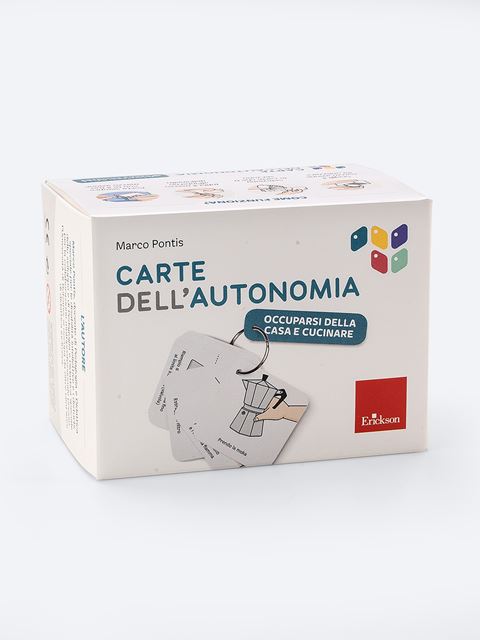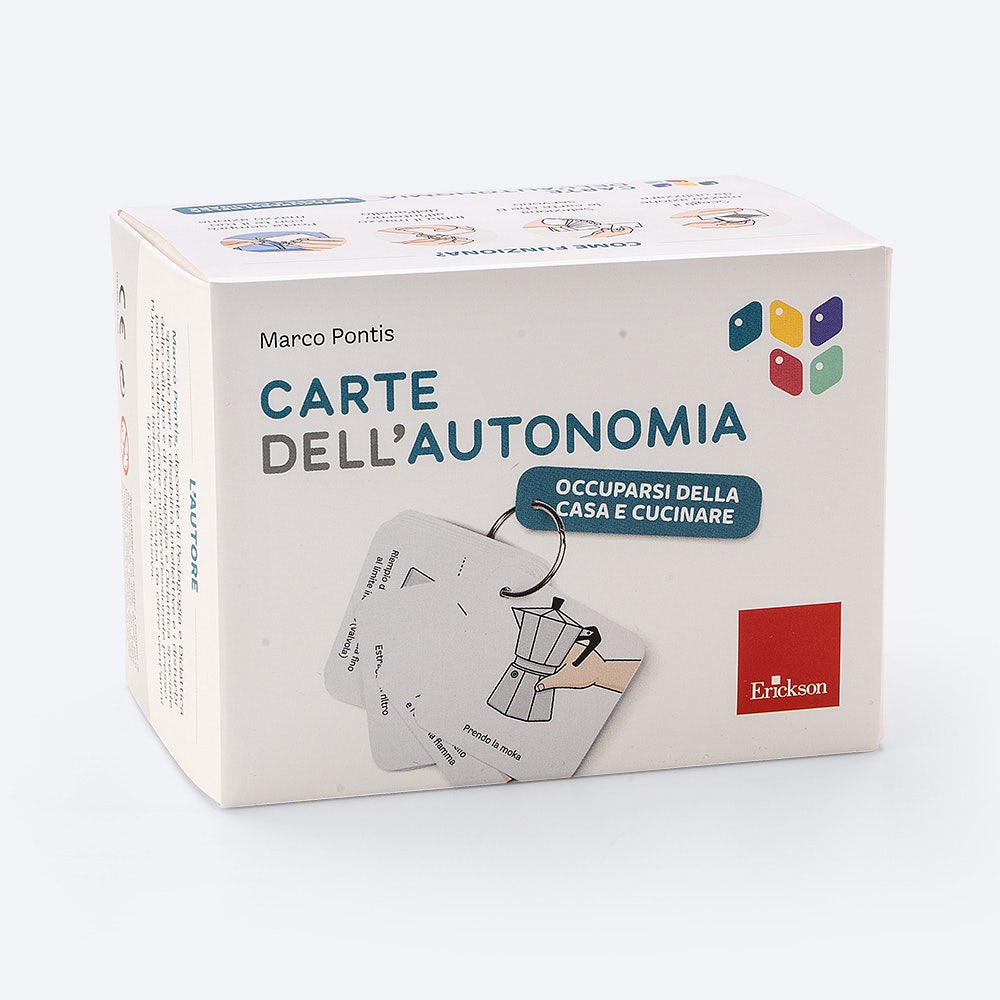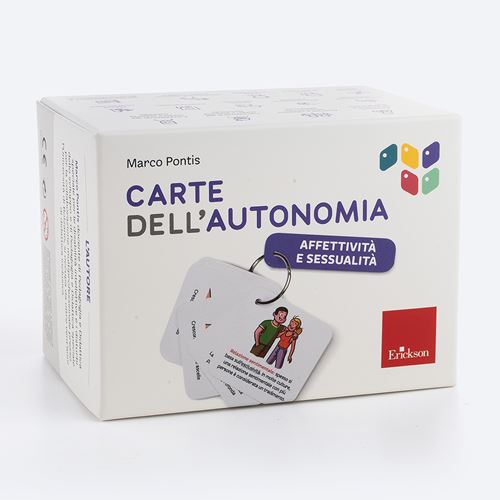 EN
EN
 PT
PT
Taking care of the house and cooking

Product: Teaching tools
Trim size in cm: 11,5x8x8cm
ISBN: 9788859036302
Publication date: 01/05/2024
REQUEST A SAMPLE OR MORE INFORMATION
The Autonomy Cards – Taking care of the house and cooking are a series of cards which try to increase autonomy relating to managing the house, preparing meals and eating. Portable and customizable: thanks to the hook in which they are inserted, it is possible to create your own deck, selecting the steps you need, to be able to view and memorize the steps to be taken to carry out numerous activities.
The cards in this box can be used directly both by the person with autism, intellectual disabilities or cognitive delays and by parents, the support teacher and those who work in the education and rehabilitation fields. Also supplied in a printable version, they can also be used as a visual support, included in the daily agenda or to illustrate sequences of actions or social stories.
1. Lay the table
2. Load and start the dishwasher
3. Load and start the washing machine
4. Wash the dishes
5. Vacuum clean
6. Cook fish or meat in the oven
7. Cook pasta with sauce
8. Eating soup
9. Prepare coffee with the pod
10. Prepare coffee with the moka
11. Prepare a sandwich
12. Prepare a vegetable flan
13. Use the teaspoon
14. Use the fork
15. Taking care of your dog/cat


HOW DOES IT WORK?





Card 1 - I approach the sink

Card 2 - I turn on the faucet

Card 3 - I adjust the water temperature

Card 4 - I press the pump of the liquid soap dispenser

Card 5 - I evenly distribute the soap on both my hands

Card 6 - I rinse off my hands
PERSONAL CARE AND HYGIENE

TAKING CARE OF HOUSE AND COOKING

AFFECTIVITY AND SEXUALITY

THE AUTHOR
Marco Pontis is a Teacher of Pedagogy and special didactics for intellectual disabilities and generalized developmental disorders as well as Pedagogy and special didactics for multi-professional collaboration at the University of Bolzano. For over fifteen years he has been working with and for people with autism spectrum disorders and other complex disabilities, constantly collaborating with family associations in the training of parents, school workers, socio-health care workers and supervising evidence-based educational interventions.